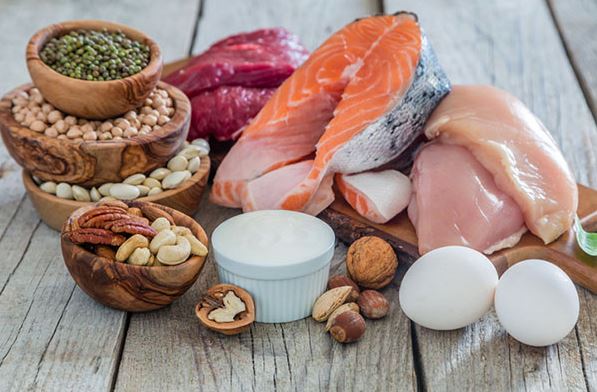Protein is a vital macronutrient that plays a crucial role in maintaining overall health and well-being. As one of the three primary macronutrients, alongside carbohydrates and fats, protein is essential for various bodily functions. Here’s a look at why protein is important, its various functions in the body, rich sources, and how to incorporate it into your diet effectively.
The Importance of Protein in Your Diet
- Building Blocks of the Body
Proteins are made up of amino acids, which are often referred to as the building blocks of life. There are 20 different amino acids, 9 of which are considered essential, meaning they must be obtained from your diet because the body cannot produce them. Proteins are critical for:
– Tissue Repair and Growth: Protein is essential for repairing tissues and building new cells, making it particularly important for athletes, people recovering from injuries, and growing children.
– Muscle Development: Protein plays a key role in muscle growth and repair. Adequate protein intake is crucial for maintaining muscle mass, especially as we age.
- Supporting Immune Function
Proteins are essential for the immune system’s functioning. Antibodies, which are specialized proteins, help the body fight off infections and illnesses by identifying and neutralizing pathogens like bacteria and viruses.
- Enzymatic Reactions
Many enzymes, which are proteins, catalyze biochemical reactions in the body, ranging from digestion to energy production. These enzymes are necessary for metabolic processes that convert food into energy and support various bodily functions.
- Hormonal Balance
Certain hormones, such as insulin and glucagon, are proteins that play a significant role in regulating bodily functions, including blood sugar levels, metabolism, and growth. Adequate protein intake can aid hormonal health and balance.
- Satiety and Weight Management
High-protein foods can help promote feelings of fullness, which may assist in weight management. Protein has a higher thermic effect than carbohydrates and fats, meaning it requires more energy to digest and metabolize, which can help with calorie control.
- Improved Metabolic Rate
Including protein-rich foods in your diet can boost your metabolic rate. Protein consumption can lead to increased energy expenditure as the body uses more energy to process protein compared to carbohydrates and fats.
- Sources of Protein
A variety of foods can provide protein, whether you’re following a meat-based or plant-based diet:
– Animal Sources: Lean meats (chicken, turkey, beef), fish, eggs, dairy products (milk, cheese, yogurt).
– Plant Sources: Legumes (beans, lentils), nuts and seeds (almonds, chia seeds), whole grains (quinoa, brown rice), and soy products (tofu, tempeh).
- Incorporating Protein into Your Diet
To ensure that you’re getting adequate protein in your diet, consider the following tips:
– Diversify Your Sources: Incorporate a variety of protein sources to ensure you’re getting all essential amino acids, especially if you follow a plant-based diet.
– Prioritize Protein at Meals: Make protein a priority during each meal. Include a serving of protein in breakfast (e.g., eggs or Greek yogurt), lunch (e.g., grilled chicken or beans), and dinner (e.g., fish or lentil stew).
– Healthy Snacks: Choose protein-rich snacks such as nuts, seeds, or protein bars to keep your energy levels stable throughout the day.
– Meal Prep: Consider preparing meals in advance that include balanced portions of protein, carbohydrates, and fats. This can make it easier to stick to your dietary goals.
Conclusion
Incorporating adequate protein into your diet is essential for maintaining good health, supporting muscle growth, enhancing immune function, and promoting balanced hormone levels. Understanding the importance of protein and making conscious choices about dietary sources can lead to improved overall well-being. Whether through animal or plant-based sources, prioritizing protein can help meet your nutritional needs and contribute to a healthy lifestyle.

